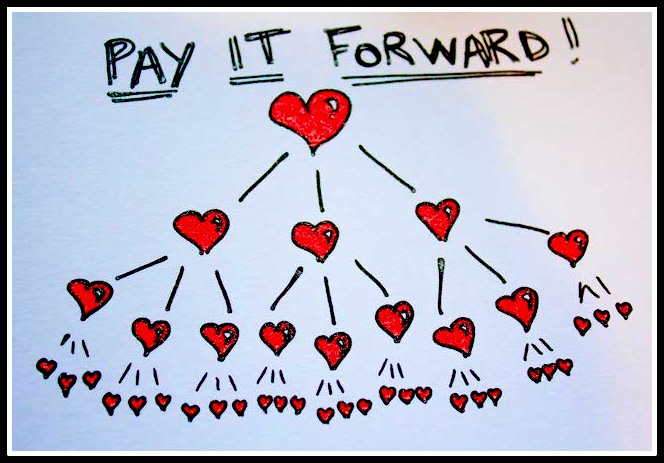"Why didn't he say hello to me?" he groused.
As casually as I could, I shuffled sideways.
Did you perhaps consider, sir, that if it means so much to you to have an interaction with this "he," there is the option of, say, hello-ing him first?
If I feel the smart of injustice (I am thin-skinned, so it happens rather often), I try to recall the Chofetz Chaim: One cannot change others. One, however, can change oneself, which, in turn, can inspire others to change themselves.

In "The Science of Paying It Forward," by
What did we find out? The bad news was that the willingness to help suffered from what social psychologists call “the bystander effect”: When participants observed a low level of helping, it increased their own likelihood of helping; but when they observed a high level of helping, they did not themselves help — they appeared to feel that their own sacrifice was no longer needed. This finding was consistent with many previous studies of “social loafing,” “free riding” and “diffusion of responsibility.”
The good news was that receiving help reliably increased the likelihood of being generous toward a stranger, and that participants who benefited from generosity were also less susceptible to the bystander effect when they themselves observed high levels of helping in their group.
We conclude that observing an act of kindness is likely to play an important role in setting a cascade of generosity in motion, since many people can potentially observe a single act of helping. But we found that it was receiving help that sustained the cascade as it spread through the group.Our research suggests that the next time you stop to help a stranger, you may be helping not only this one particular individual but potentially many others downstream. And who knows? In the end, maybe what goes around will come around.
To get the world to be nicer, be nice first.
The pure righteous do not complain of the dark, but increase the light; they do not complain of evil, but increase justice; they do not complain of heresy, but increase faith; they do not complain of ignorance, but increase wisdom.
—Arpilei Tohar (1914), p. 2. Rav Avraham Itzchak Kook
The pure righteous do not complain of the dark, but increase the light; they do not complain of evil, but increase justice; they do not complain of heresy, but increase faith; they do not complain of ignorance, but increase wisdom.
—Arpilei Tohar (1914), p. 2. Rav Avraham Itzchak Kook
No comments:
Post a Comment